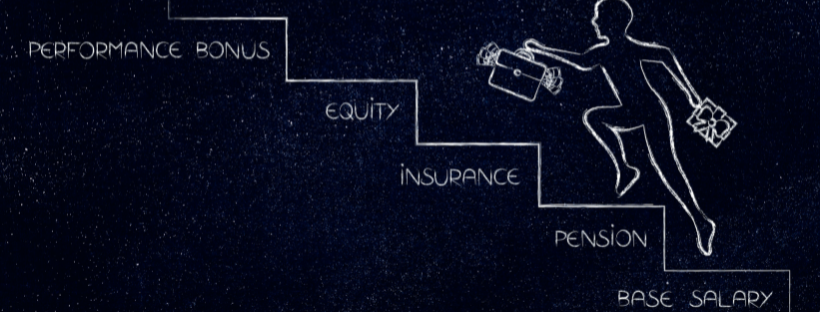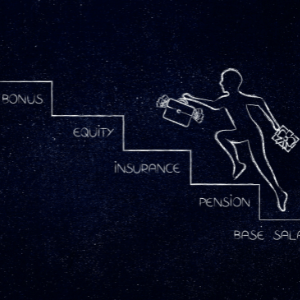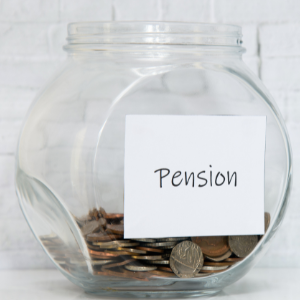A P11D is a statutory form that is needed by the tax office to show the value of your end-of-year expenses also known as company benefits. The submission date for the P11D, Employee Benefits Form, has just passed on the 6th of July, but here are some tips and trip-ups to be aware of for next time.
Perks for employees can cost less than you think
With exemptions from tax and National Insurance (NI) available on certain benefits, and no requirement to disclose within the forms P11D each year, benefits for employees can cost less than you may originally have thought.
If a benefit is required to be disclosed in the P11D, whilst there will still be income tax payable by the employee and NI payable by the employer, there still usually remains a saving of employee NI.
Application for PAYE Settlement Agreement for non-exempted benefits
If a benefit you provide does not fall within the exemptions (listed below), but, as an employer, you do not want a resulting tax bill for an employee, an application for a PAYE Settlement Agreement can be agreed with HM Revenue & Customs for the employer to settle the bill.
Get in touch with us if you would like further information on this.
P11D tips and trips-ups to be aware of
Annual/Christmas social functions and parties
If your business provides for staff entertainment, this is treated as a taxable benefit to employees, but there is an exemption for an annual event, provided the cost is less than £150 per head. This figure is actually the VAT inclusive amount which can often catch VAT-registered businesses out when totting up the totals.
This £150 limit is across ALL annual events – not just the Christmas party.
For example, for a summer event at £90 per head, and a winter event at £70 per head, you would choose the summer event to fall under the exemption, with the winter event then fully taxable to the employees attending.
To avoid the employee being taxed on this, a PAYE Settlement Agreement can be arranged in advance, so any tax/NI that would otherwise have been paid by employees is paid by the employer.
Trivial benefits
If token one-off gifts of less than £50 (which are not cash or cash voucher) are given to employees for reasons outside of the work/performance categories, these are treated as a trivial benefit and exempt from being treated as a benefit. This exemption can be used for any or all employees multiple times throughout the year.
There is no cap on this exemption, except for those Directors controlling their own companies who can only treat themselves at £50 per time up to an annual cap of £300 over a tax year.
Salary sacrifice arrangements
If your business is unable to pay for a benefit in kind directly on behalf of an employee, there is the option for the employee to sacrifice an equivalent amount of salary in exchange for the benefit.
Since 2016, this only provides tax and NI savings for salary sacrifices being made for:
- Cycles and cyclist safety equipment (including the Cycle to Work scheme)
- Pension contributions
- Childcare
- Counselling and other outplacement services
- Retraining courses
Salary sacrifices made for any other reasons are treated as a benefit in kind and subject to disclosure on the P11D form. This includes sacrifices made in respect of current exempt benefits, including annual events, mobile phones, trivial benefits, etc.
Business mileage – flat rate reimbursements
Most employers know of the reimbursement of 45p per mile for the first 10,000 business miles and 25p per mile thereafter for business mileage tax-free for employees. However, this is only the rate applicable for employees using their own cars, whether petrol, diesel, hybrid or electric.
Those employees provided with company cars must be reimbursed at a lower rate under the HM Revenue & Customs ‘Advisory Fuel Rate’. These rates fluctuate every quarter and should be checked as different rates apply to petrol, diesel and LPG vehicles.
Hybrid company cars utilise the rate applicable for their primary fuel source. Fully electric company cars can be reimbursed under the Advisory Electric Rate published – currently 4p per business mile.
Business mileage
Business mileage covers travel between permanent and temporary workplaces, not between permanent workplaces. Whether home is considered a workplace or not, travel to another permanent workplace from the home would be considered commuting, not business mileage.
Temporary workplace
A temporary workplace is one in which tasks are undertaken of limited duration, and
- i) the employee spends less than 40% of working time at that place
OR
- ii) continuous work at that place is expected to last less than 24 months.
If these rules are not met, the workplace is treated as a permanent workplace and mileage between that and another permanent workplace should not be reimbursed under the mileage rates, and any inspection by HM Revenue & Customs could disallow the reimbursement.
Mobile phone bills
A mobile phone is tax/NIC free for both the employer and employee, irrespective of private use made by the employee if the contract is held and paid for directly by the employer. However, this exemption does not apply if an employee’s personal mobile phone bill is paid for.
If the employee is reimbursed for their bill directly, then this is treated as remuneration and must be grossed up, with tax, and employee and employer NI due as it is effectively classed as cash earnings, and should be run through payroll at the time of the payment.
If the mobile phone provider is paid directly, instead of paying the employee, this would go on the P11D as a benefit in kind.
If only the cost of the business calls is reimbursed and records are kept of which client the calls reimbursed related to, then the payment is not treated as a benefit in kind due to specific business expenses exemptions.
Beneficial loan interest
Provided any loan made to an employee or Director is below £10,000, no benefit in kind is treated as arising. A loan is also considered to be made where a Director draws down money in excess of the amount the company owes them in terms of salary, dividends, etc.
Where the loan exceeds £10,000, a P11D benefit in kind entry (i.e., employee tax and employer NI is payable) still only arises if the company charges interest on the loan amount at a rate lower than HM Revenue & Customs’ official rate, published on their website – currently 2%.
Whilst, for Directors, this could be an option to obtain a cheap loan, there are other ramifications for corporation tax payable on overdrawn loan accounts, which counteract that benefit and there is no lower £10,000 threshold for this ‘s.455’ tax payable.
Further guidance on benefits in kind
The above by no means covers all aspects of benefits in kind but answers most of the usual queries raised, and the pitfalls.
If guidance would be beneficial, before considering providing a benefit to employees, please get in touch. We can provide further, in-depth guidance and assistance and are only too pleased to help.
Read more from ProActivity
A P11D is a statutory form that is needed by the tax office to show the value of your end-of-year expenses also known as company benefits. The submission date for the P11D, Employee Benefits Form, has just passed on the 6th of July, but here are some tips and trip-ups to be aware of for next time.
Perks for employees can cost less than you think
With exemptions from tax and National Insurance (NI) available on certain benefits, and no requirement to disclose within the forms P11D each year, benefits for employees can cost less than you may originally have thought.
If a benefit is required to be disclosed in the P11D, whilst there will still be income tax payable by the employee and NI payable by the employer, there still usually remains a saving of employee NI.
Application for PAYE Settlement Agreement for non-exempted benefits
If a benefit you provide does not fall within the exemptions (listed below), but, as an employer, you do not want a resulting tax bill for an employee, an application for a PAYE Settlement Agreement can be agreed with HM Revenue & Customs for the employer to settle the bill.
Get in touch with us if you would like further information on this.
P11D tips and trips-ups to be aware of
Annual/Christmas social functions and parties
If your business provides for staff entertainment, this is treated as a taxable benefit to employees, but there is an exemption for an annual event, provided the cost is less than £150 per head. This figure is actually the VAT inclusive amount which can often catch VAT-registered businesses out when totting up the totals.
This £150 limit is across ALL annual events – not just the Christmas party.
For example, for a summer event at £90 per head, and a winter event at £70 per head, you would choose the summer event to fall under the exemption, with the winter event then fully taxable to the employees attending.
To avoid the employee being taxed on this, a PAYE Settlement Agreement can be arranged in advance, so any tax/NI that would otherwise have been paid by employees is paid by the employer.
Trivial benefits
If token one-off gifts of less than £50 (which are not cash or cash voucher) are given to employees for reasons outside of the work/performance categories, these are treated as a trivial benefit and exempt from being treated as a benefit. This exemption can be used for any or all employees multiple times throughout the year.
There is no cap on this exemption, except for those Directors controlling their own companies who can only treat themselves at £50 per time up to an annual cap of £300 over a tax year.
Salary sacrifice arrangements
If your business is unable to pay for a benefit in kind directly on behalf of an employee, there is the option for the employee to sacrifice an equivalent amount of salary in exchange for the benefit.
Since 2016, this only provides tax and NI savings for salary sacrifices being made for:
- Cycles and cyclist safety equipment (including the Cycle to Work scheme)
- Pension contributions
- Childcare
- Counselling and other outplacement services
- Retraining courses
Salary sacrifices made for any other reasons are treated as a benefit in kind and subject to disclosure on the P11D form. This includes sacrifices made in respect of current exempt benefits, including annual events, mobile phones, trivial benefits, etc.
Business mileage – flat rate reimbursements
Most employers know of the reimbursement of 45p per mile for the first 10,000 business miles and 25p per mile thereafter for business mileage tax-free for employees. However, this is only the rate applicable for employees using their own cars, whether petrol, diesel, hybrid or electric.
Those employees provided with company cars must be reimbursed at a lower rate under the HM Revenue & Customs ‘Advisory Fuel Rate’. These rates fluctuate every quarter and should be checked as different rates apply to petrol, diesel and LPG vehicles.
Hybrid company cars utilise the rate applicable for their primary fuel source. Fully electric company cars can be reimbursed under the Advisory Electric Rate published – currently 4p per business mile.
Business mileage
Business mileage covers travel between permanent and temporary workplaces, not between permanent workplaces. Whether home is considered a workplace or not, travel to another permanent workplace from the home would be considered commuting, not business mileage.
Temporary workplace
A temporary workplace is one in which tasks are undertaken of limited duration, and
- i) the employee spends less than 40% of working time at that place
OR
- ii) continuous work at that place is expected to last less than 24 months.
If these rules are not met, the workplace is treated as a permanent workplace and mileage between that and another permanent workplace should not be reimbursed under the mileage rates, and any inspection by HM Revenue & Customs could disallow the reimbursement.
Mobile phone bills
A mobile phone is tax/NIC free for both the employer and employee, irrespective of private use made by the employee if the contract is held and paid for directly by the employer. However, this exemption does not apply if an employee’s personal mobile phone bill is paid for.
If the employee is reimbursed for their bill directly, then this is treated as remuneration and must be grossed up, with tax, and employee and employer NI due as it is effectively classed as cash earnings, and should be run through payroll at the time of the payment.
If the mobile phone provider is paid directly, instead of paying the employee, this would go on the P11D as a benefit in kind.
If only the cost of the business calls is reimbursed and records are kept of which client the calls reimbursed related to, then the payment is not treated as a benefit in kind due to specific business expenses exemptions.
Beneficial loan interest
Provided any loan made to an employee or Director is below £10,000, no benefit in kind is treated as arising. A loan is also considered to be made where a Director draws down money in excess of the amount the company owes them in terms of salary, dividends, etc.
Where the loan exceeds £10,000, a P11D benefit in kind entry (i.e., employee tax and employer NI is payable) still only arises if the company charges interest on the loan amount at a rate lower than HM Revenue & Customs’ official rate, published on their website – currently 2%.
Whilst, for Directors, this could be an option to obtain a cheap loan, there are other ramifications for corporation tax payable on overdrawn loan accounts, which counteract that benefit and there is no lower £10,000 threshold for this ‘s.455’ tax payable.
Further guidance on benefits in kind
The above by no means covers all aspects of benefits in kind but answers most of the usual queries raised, and the pitfalls.
If guidance would be beneficial, before considering providing a benefit to employees, please get in touch. We can provide further, in-depth guidance and assistance and are only too pleased to help.











